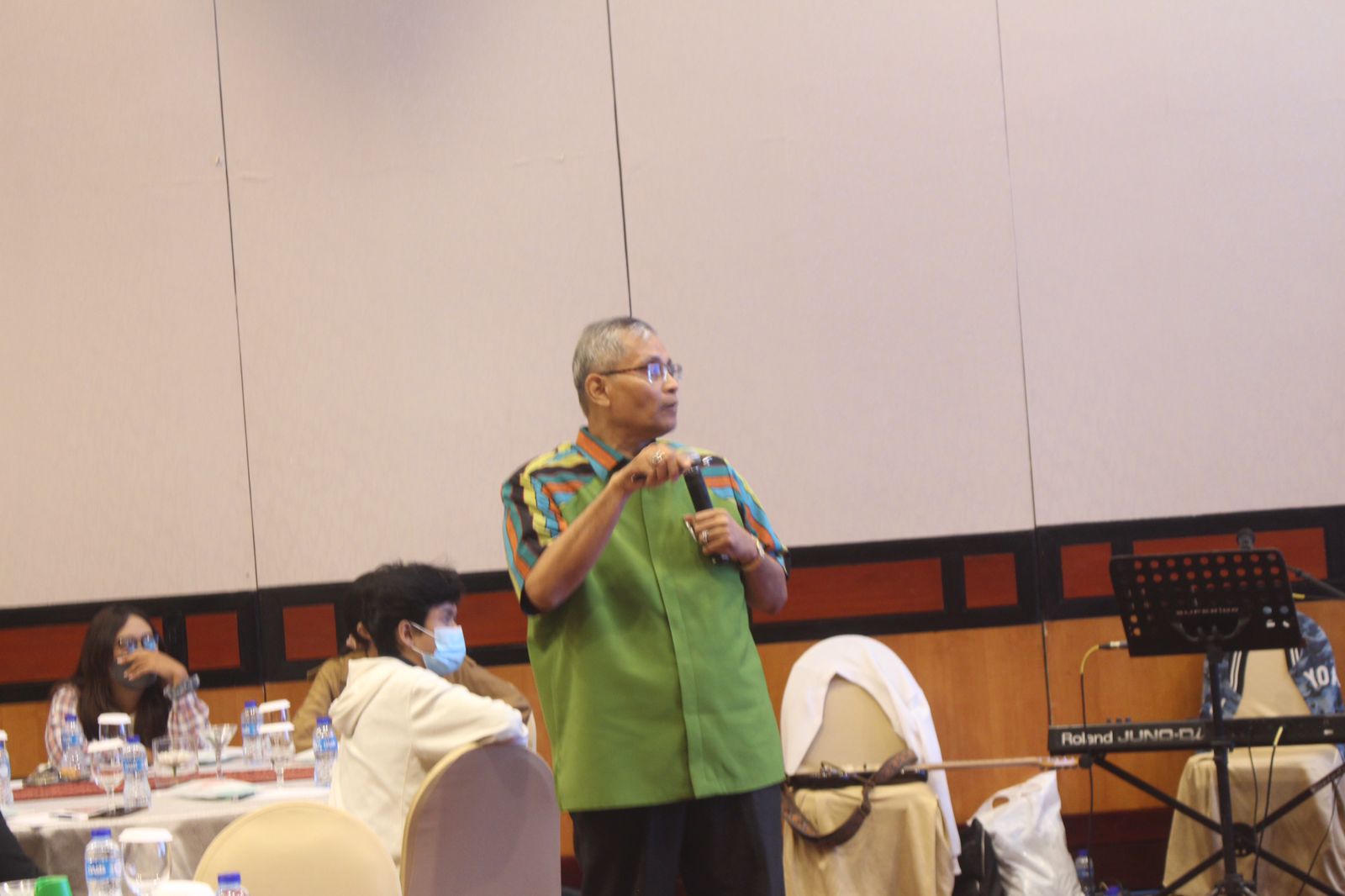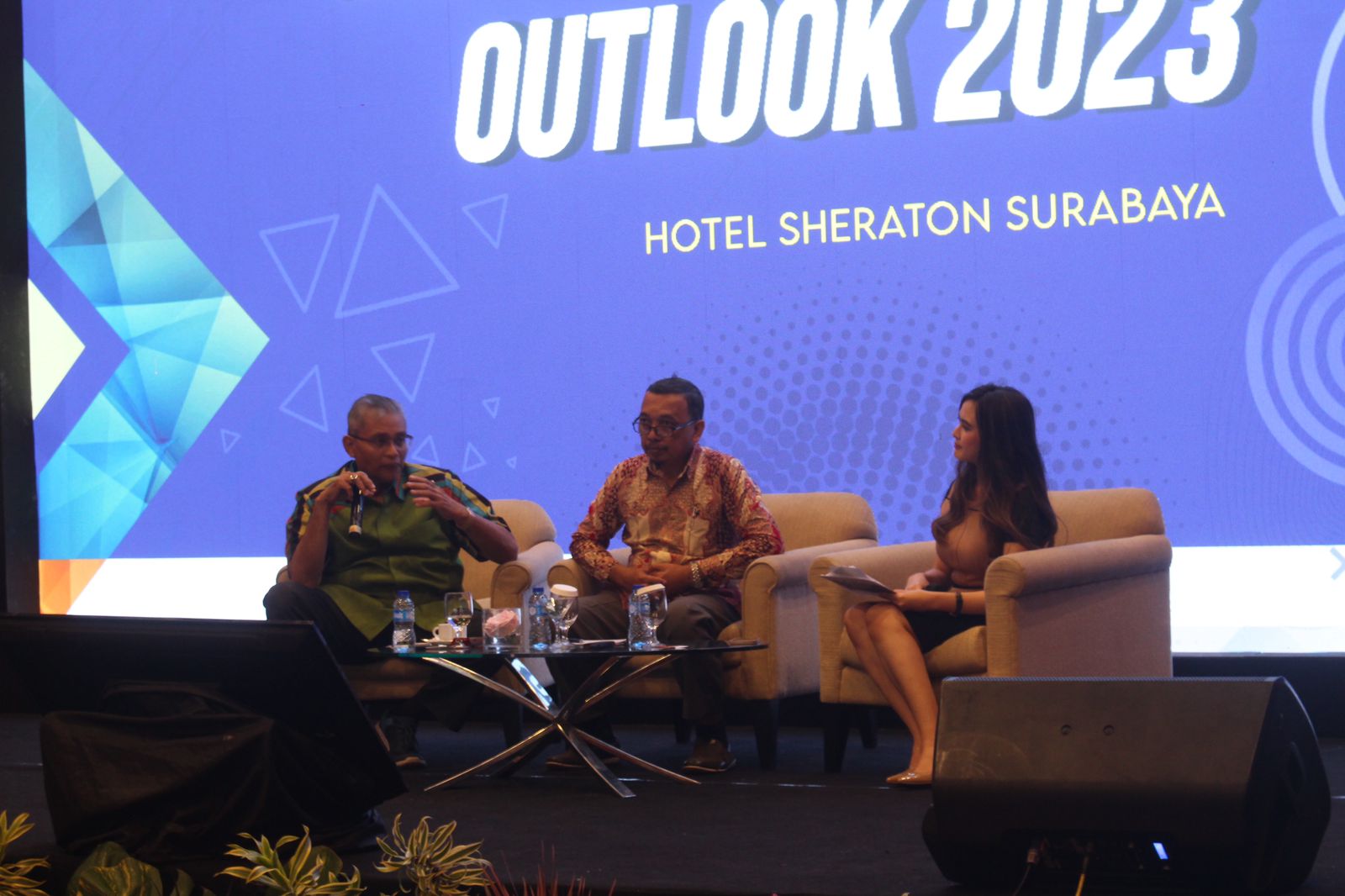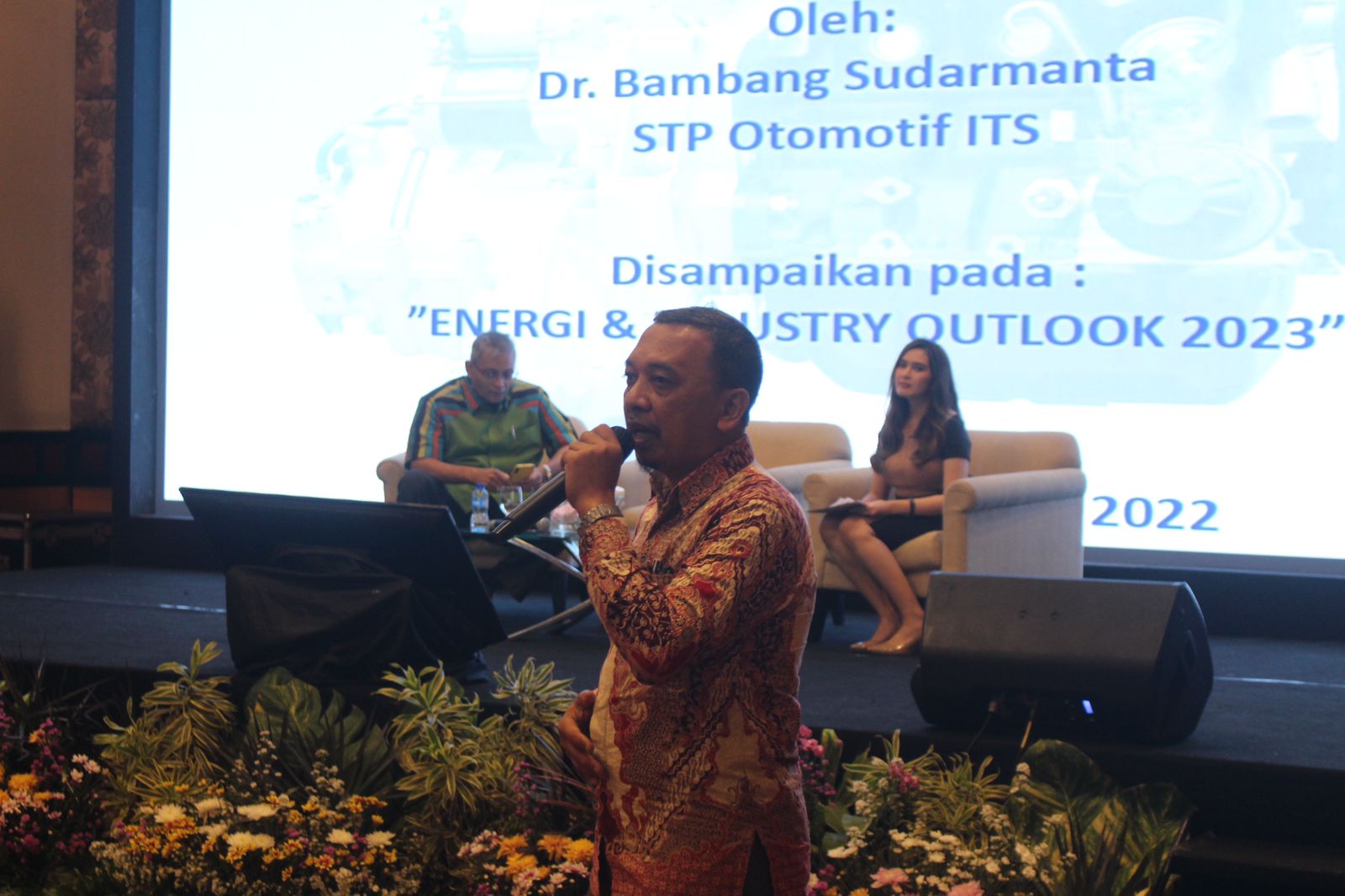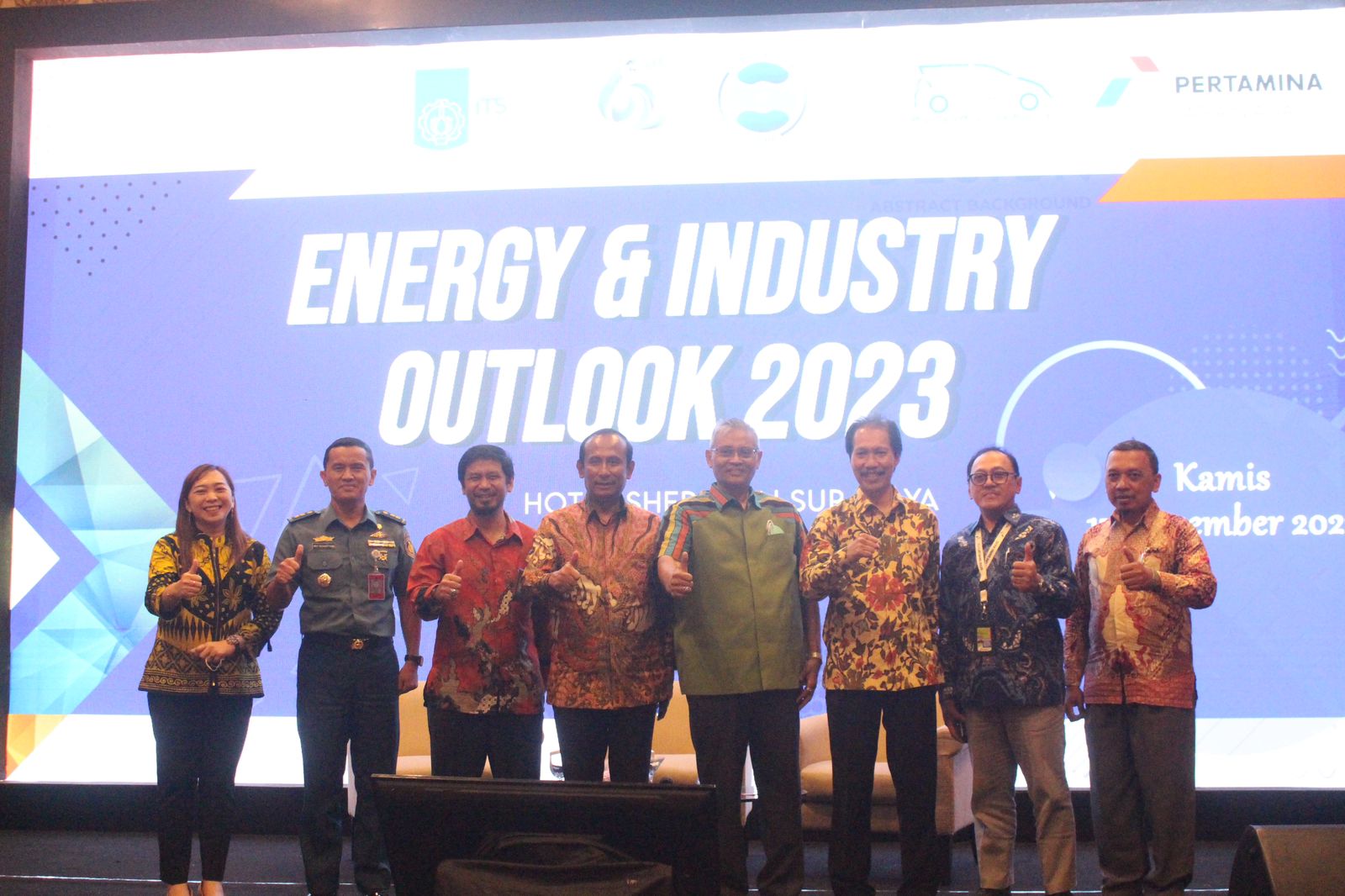ITS Reminds the Importance of Energy in Advancing the Indonesian Economy

Presentation on the role of energy in IKM delivered by Dr. Ir Arman Hakim Nasution MEng
ITS Campus News – Adaptive to the times, Institut Teknologi Sepuluh Nopember (ITS) continues to provide solutions to all the problems of the Indonesian nation, especially energy and the economy. Related to this, ITS held discussions between business people, academics, and government representatives about the role of energy in advancing the Indonesian economy, especially in small and medium industries (IKM) in Sheraton Surabaya Hotel & Towers on Thursday (17/11).
Starting the discussion session, the Head of the Center for Public Policy Studies on Business and Industry (PKKPBI) ITS, Dr. Ir Arman Hakim Nasution MEng, explained that quality economic growth can be driven by quality capabilities from an industry. country. Because the industry is a real sector that absorbs a massive workforce, provides added value, and evens out Perpetual Credit Income (PCI) in real terms.

Joint discussion session between Dr Ir Arman Hakim Nasution MEng and Dr Bambang Sudarmanta ST MT with the audience
Arman also explained that overall energy demand will be expected to grow by an average of 5.6 percent per year. He added, with this growth, in 2030 it is predicted that the share of demand will be dominated by the industrial sector of 49 percent. “This prediction is supported and sourced from the Indonesia Energy Outlook Study for the 2010-2030 period,” he explained.
Furthermore, the lecturer at the ITS Business Management Department said that SMEs are currently facing three kinds of challenges. The first challenge is that SMEs are currently dealing with the industrial revolution 4.0, then moving between global supply chains to local supply chains, and potential industry moves from pre and post Covid-19. “Although there are many challenges, it does not mean that the industry cannot be provided with solutions by ITS and other academics,” he said.

A Presentation delivered by Dr. Bambang Sudarmanta ST MT with the theme of the role of energy in the automotive sector
Through various brainstorming sessions with ITS, Arman managed to generate several opportunities that could potentially become solutions to these challenges. Starting from implementing the digital transformation of micro, small and medium enterprises (MSMEs) 4.0, recommending collaboration policies for SMEs with academics, business practitioners, and the government, as well as various other opportunities. “Thus, Purchasing Manager Indexes (PMI) will continue to increase over time,” he warned.
In line with Arman, the Area Manager of Science Techno Park (KST) of ITS Automotive Cluster, Dr. Bambang Sudarmanta ST MT, stated that good energy management is needed to realize energy sovereignty. It is expected that in the future Indonesia will have the ability to control energy resources, prices and distribution. “In accordance with the presentation delivered by Pak Arman earlier, energy consumption in the industrial sector reaches 50 to 60 percent,” he said.

A group photo with the representatives of academicians, government, and business in Energy & Industry Outlook 2023
The member of the National Energy Council (DEN), Ir Satya Widya Yudha MSc PhD, revealed that Indonesia has new energy variety of renewable energy (EBT). However, ironically, based on data from DEN, Indonesia is still unable to make optimal use of EBT. “In fact, we have a lot of energy, from oil, coal, natural gas, to other energies,” he said.
Therefore, in order to achieve an optimal Indonesian economy, Arman hopes that collaboration between business people, academics and the government can produce good synergies. In this case, the government acts as a provider of optimal policies and incentives, academicians as scientific contributors, and business people as contributors in practical science. “Don’t just stop here. Hopefully, our synergy can be stronger than before,” Arman concluded. (ITS PR)
Related News
-
ITS Graduate Earns Three Degrees at the Age of 21
ITS Campus, ITS News — Another proud achievement has been made by a graduate of Institut Teknologi Sepuluh Nopember
December 25, 2022 20:12 -
ITS and East Java Education Office Collaborate to Improve Teachers’ Welfare
ITS Campus, ITS News — The welfare of educators, particularly honorary teachers in East Java, still requires serious attention.
December 25, 2022 20:12 -
ITS Gold Medals Surge in Gemastik XVII 2024
ITS Campus, ITS News – Demonstrating its growing excellence in the field of information technology, Institut Teknologi Sepuluh Nopember
December 25, 2022 20:12 -
PT PAL Indonesia Encouraged ITS to Collaborate Toward Indonesia Emas 2045
ITS Campus, ITS News — PT PAL Indonesia (an Indonesian naval engineering company) invites Institut Teknologi Sepuluh Nopember (ITS) to
December 25, 2022 20:12
